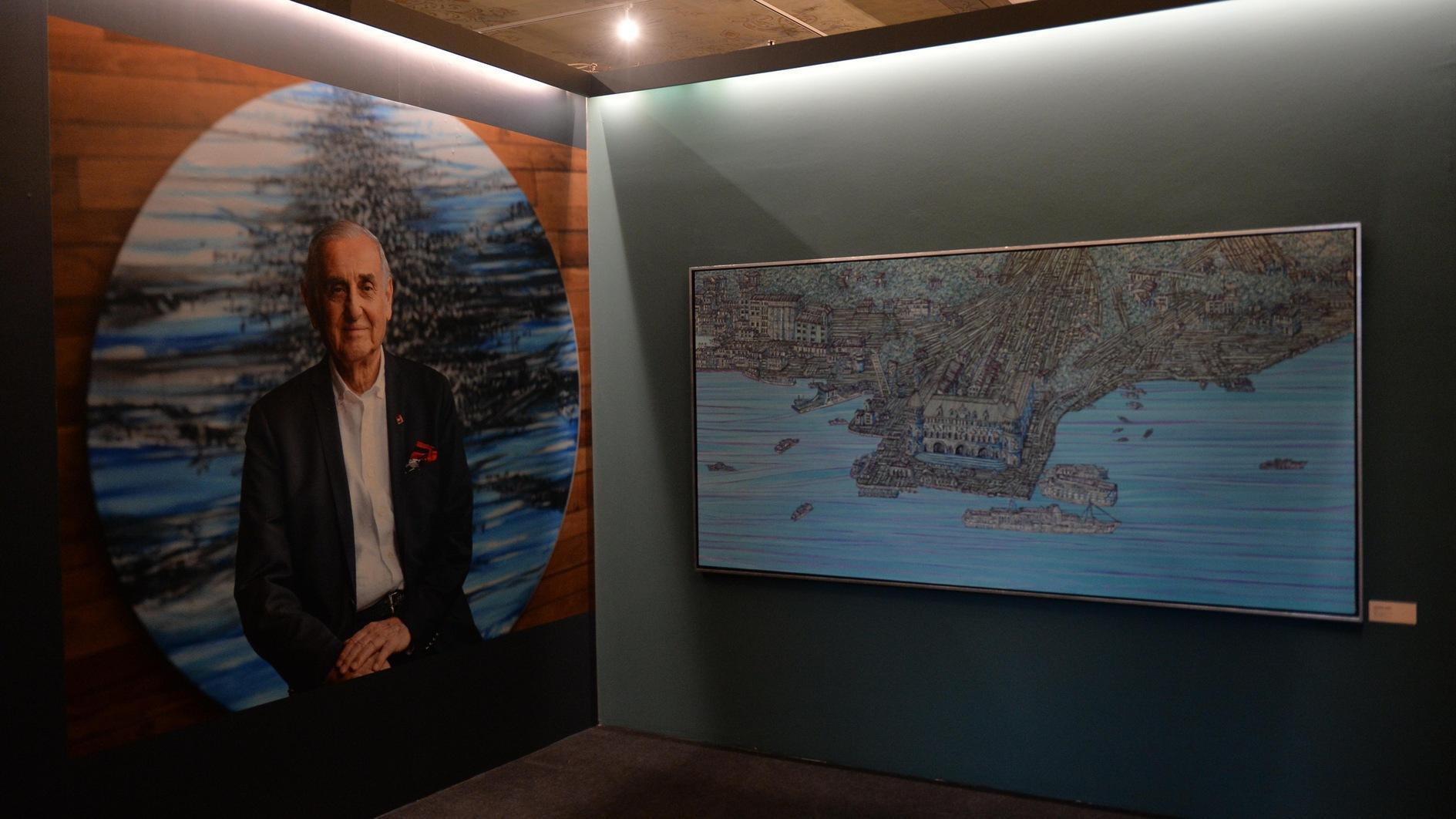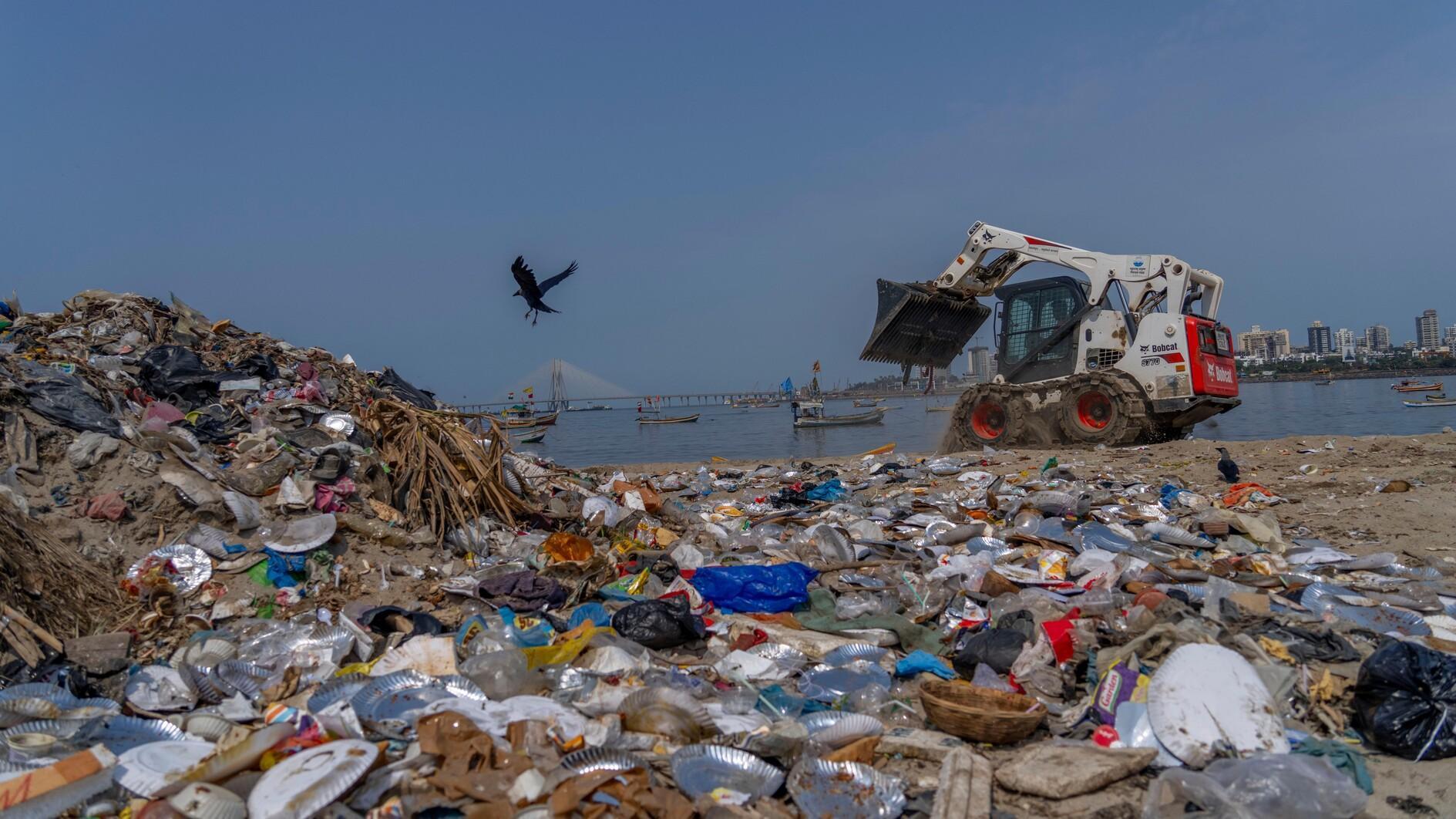Death is everywhere in Idlib, Syria’s last rebel-held enclave
İdris Emen – IDLIB
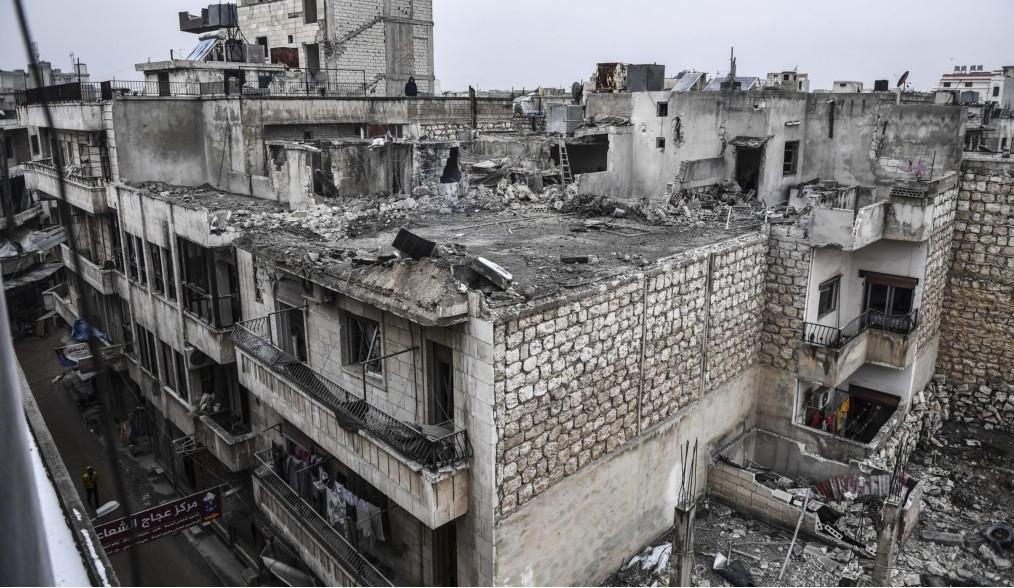
As the Syrian war approaches its ninth year, half of the 22 million population has been displaced and more than six million of them had to leave the country.
In the south of the Idlib province, hundreds of thousands of people were displaced from their homes due to bombings and attacks carried out by the regime.
Due to the attacks, fear has replaced peace in Idlib city center, 40 kilometers from the Cilvegözü border gate in Turkey’s Hatay province.
Anxiety prevails in the city center and people are worried that the regime will move further north.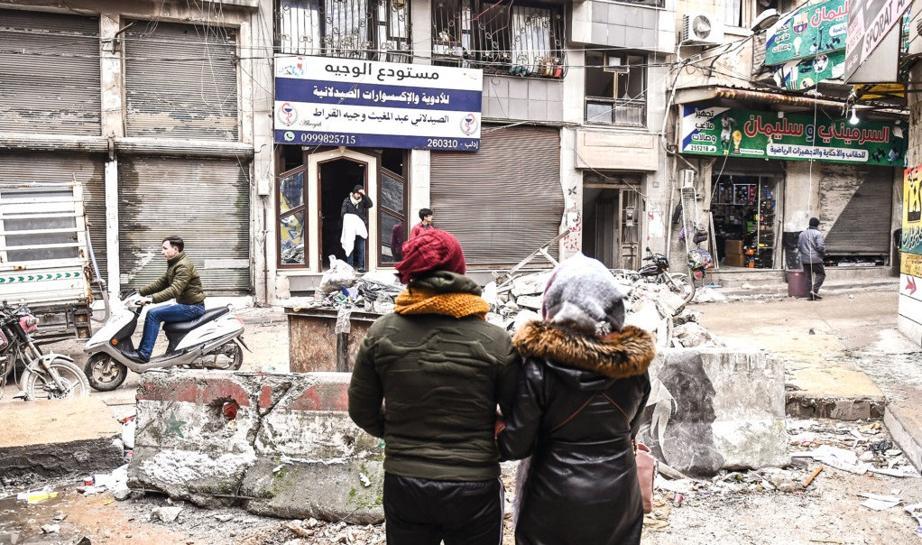
The biggest victims of this forced migration are children born into the war and who are trying to survive with their families.
The people of Idlib are saying they don’t go out in the evenings due to intense regime shelling. But for them, staying at home is not safe either, the bombs can come anytime.
Hürriyet correspondents İdris Emen and Selçuk Şamiloğlu spoke with the residents of Idlib, the last opposition-held enclave in the war-ravaged country.
Muhammed Ahmed Ashour says a bomb fell in front of his house while having dinner at home with his family. He said he had barged out of the house with his children, not knowing what exactly to do.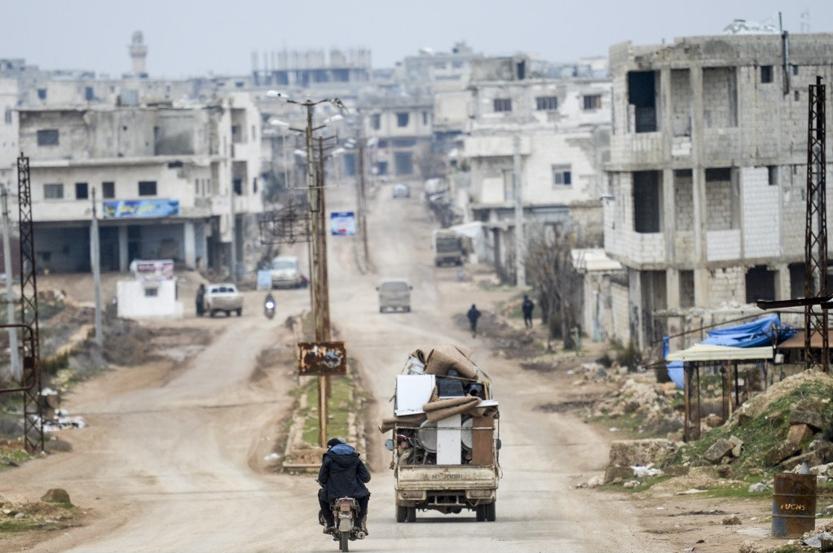
“We were having tea with my family at home at around 10:00 p.m. and a bomb fell onto the house opposite us. Our windows shook and shattered due to the bomb. Our house has become uninhabitable. Our children live in fear. But we don’t know where to go. This is our home,” Ashour explained the fear he had experienced.
Shopping has also come to a halt in Idlib, where people would shop as usual and which was relatively safer than other parts of Syria in the past.
An Idlib shopkeeper says that people do not shop except for their compulsory needs.
“People would shop and try to meet their needs before these latest developments. Now they only shop for essential things. The weather is cold, they buy heating material, clothing and basic food the most. This situation has negatively affected business life,” he adds.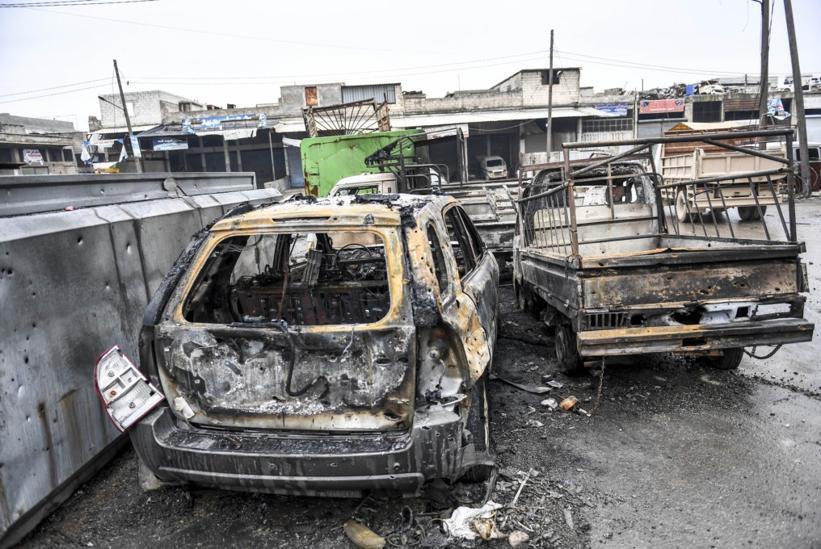
Another shopkeeper, Ahmed Halabi, says prices have risen in Idlib after the last conflicts.
“The purchasing power of the people have decreased. People who migrate buy something to take with them. They mostly buy products such as flour, sugar, rice. We are going through hard times. People have to spend their money carefully,” Halabi says.
Regime forces are said to be 10 kilometers from Idlib city center, and while regime attacks continue in the south of Idlib, it is possible to see the traces of bomb attacks in the city center.
Houses whose windows are destroyed or ruined are the new normality of Idlib.
The mobility that was once on the streets is now gone.
These people, having fled regions whose control passed from opposition forces to the Syrian regime after joint attacks with Russian jets, are on the move again, with a few of their belongings.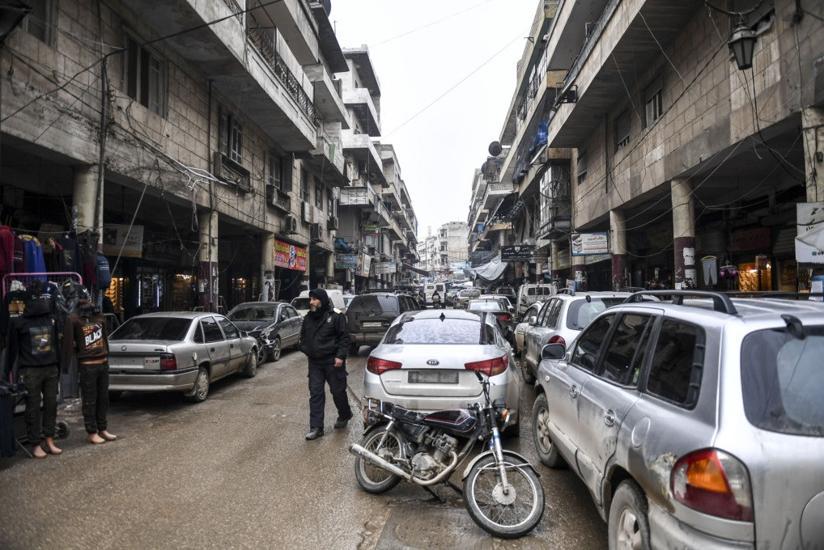
Hundreds of vehicles driving out of the province on the Darritazze road to Afrin are drawing our attention.
Locals help open traffic in the area where the road is often blocked due to long queues.
An officer who checks the passing cars says that nearly a thousand families flee a day.
“The people set out to go to Basuta, and from there to Afrin, because of the clashes that started in the Etarib region. Migration started three days ago,” he says.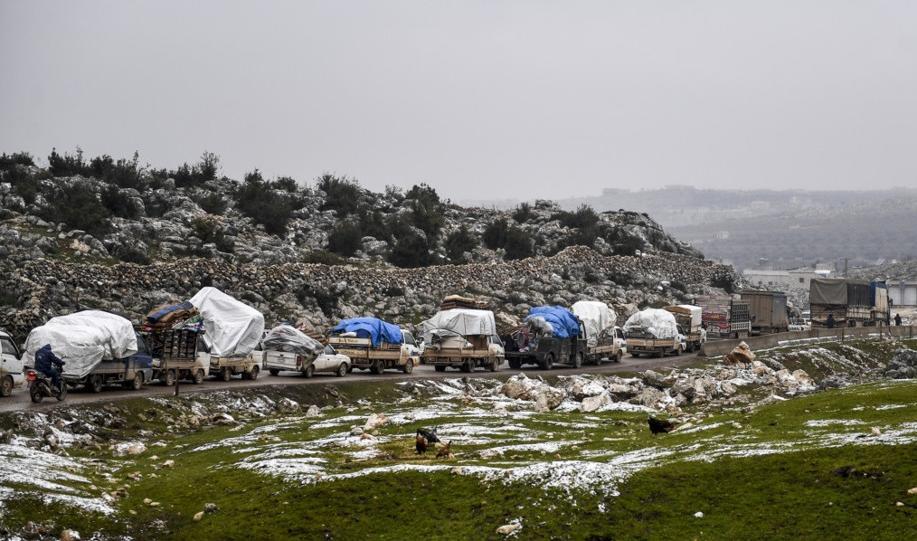
Hasan Muhammed, who set off with his family, says that he was trying to find a safe place for himself and his children.
“We escaped the conflicts in the Etarib region. With my wife and seven children, we hit the road with a few items we took with us. We have been on the road for seven hours. We have three more hours. We are trying to find a safe place.”



